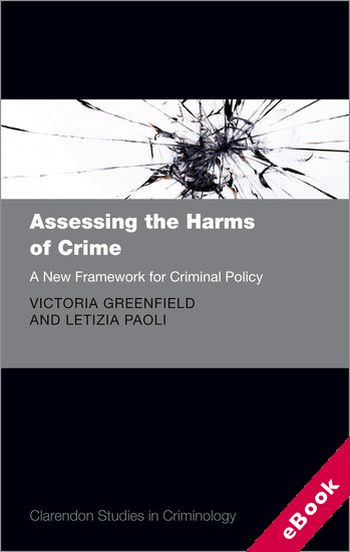
The device(s) you use to access the eBook content must be authorized with an Adobe ID before you download the product otherwise it will fail to register correctly.
For further information see https://www.wildy.com/ebook-formats
Once the order is confirmed an automated e-mail will be sent to you to allow you to download the eBook.
All eBooks are supplied firm sale and cannot be returned. If you believe there is a fault with your eBook then contact us on ebooks@wildy.com and we will help in resolving the issue. This does not affect your statutory rights.
Assessing the Harms of Crime will provide a firm analytical foundation for making normative decisions about criminal and related policy, taking harm-and its reduction-as a conceptual starting point and supplying the means for systematic, empirical analysis in a harm assessment framework. By exploring harm's place in legal history and theory, criminology, and related fields and by considering the relevance of harm and its reduction for criminal policy and the governance of security, the book demonstrates the centrality of harm, including its reduction, to crime, policy, and governance. It also highlights a substantial gap in methods available to the policy community to take on harm and the challenges of developing them. Working to fill that gap, the book presents the authors' "Harm Assessment Framework", consisting of tools and processes to identify, evaluate, and rank harms and to carefully distinguish harms that result directly from activities from those that are remote or driven at least partially by policy.
The book also presents applications to complex crimes, primarily involving coca and cocaine, that show the framework's value added with new, actionable insight to harm and policy. On this basis, the book argues that criminology would benefit from expanding its mission to include harm and target harm reduction and from positioning harm assessment as a core task. Lastly, it posits that systematic, empirical harm-based policy analysis can contribute to decisions about criminal policy and the governance of security and to broader societal goals of justice.